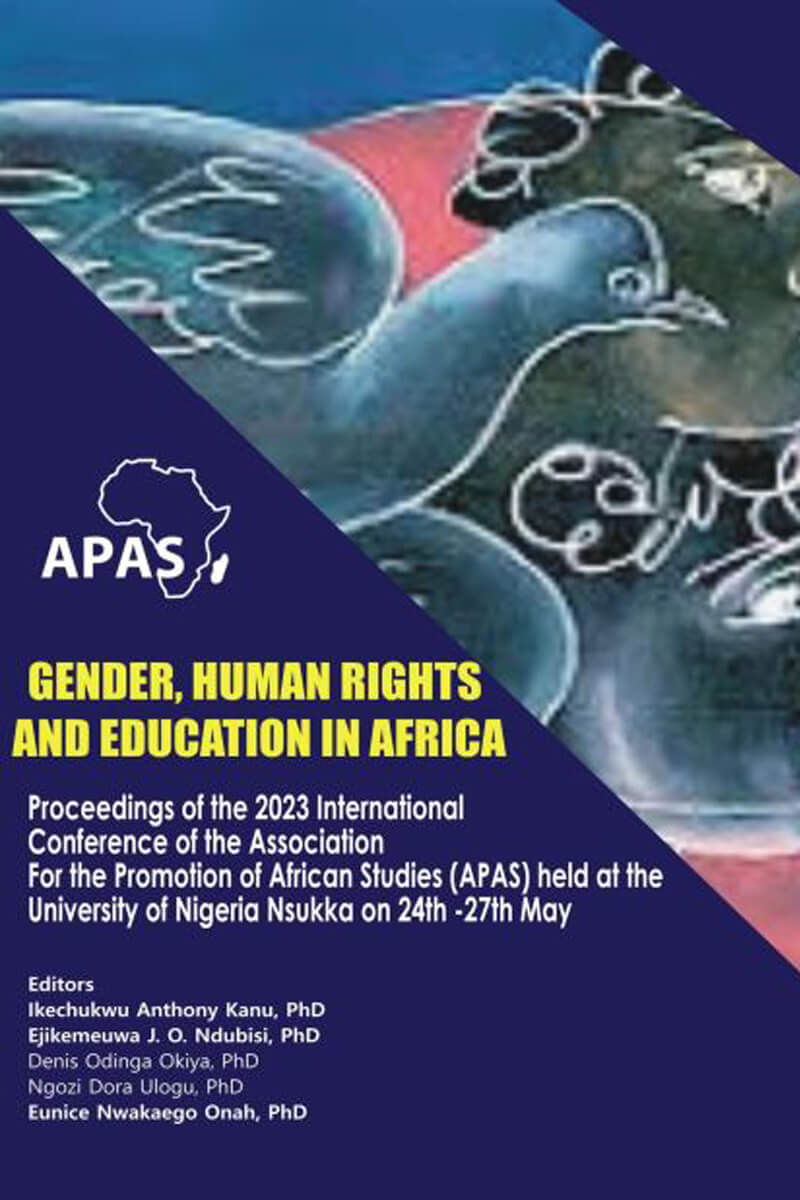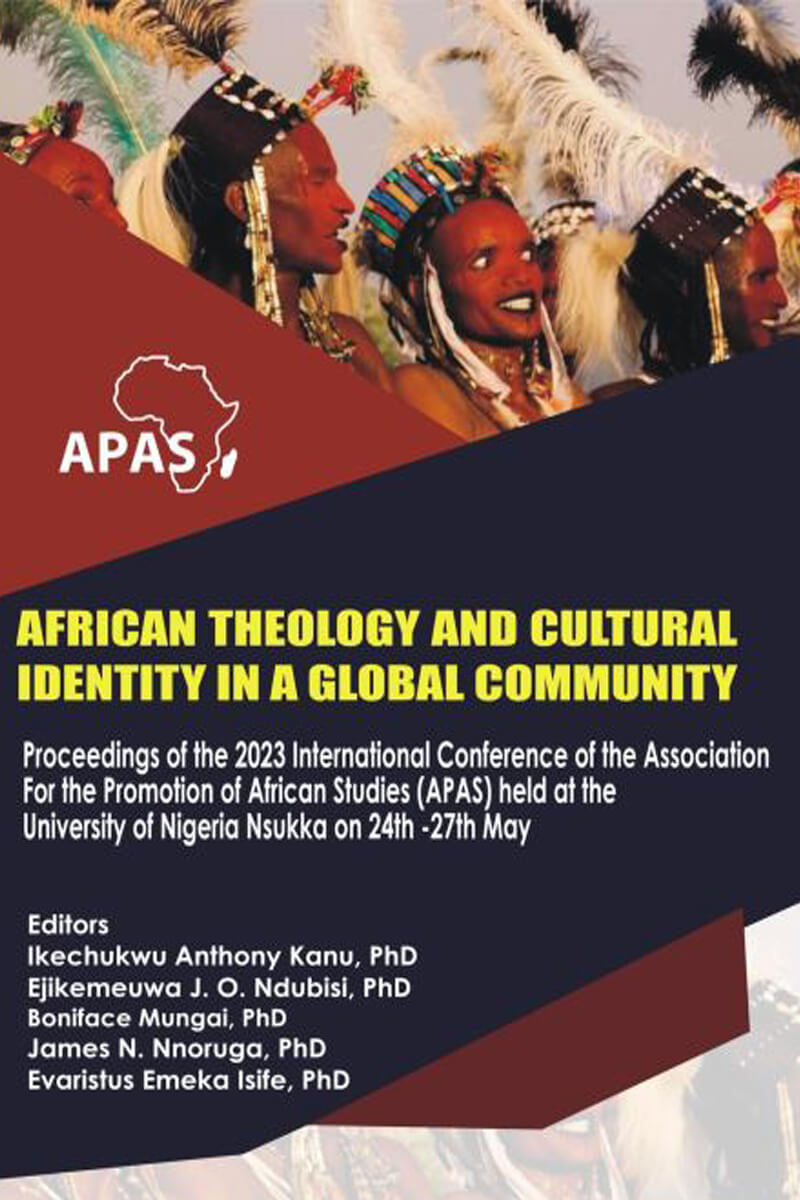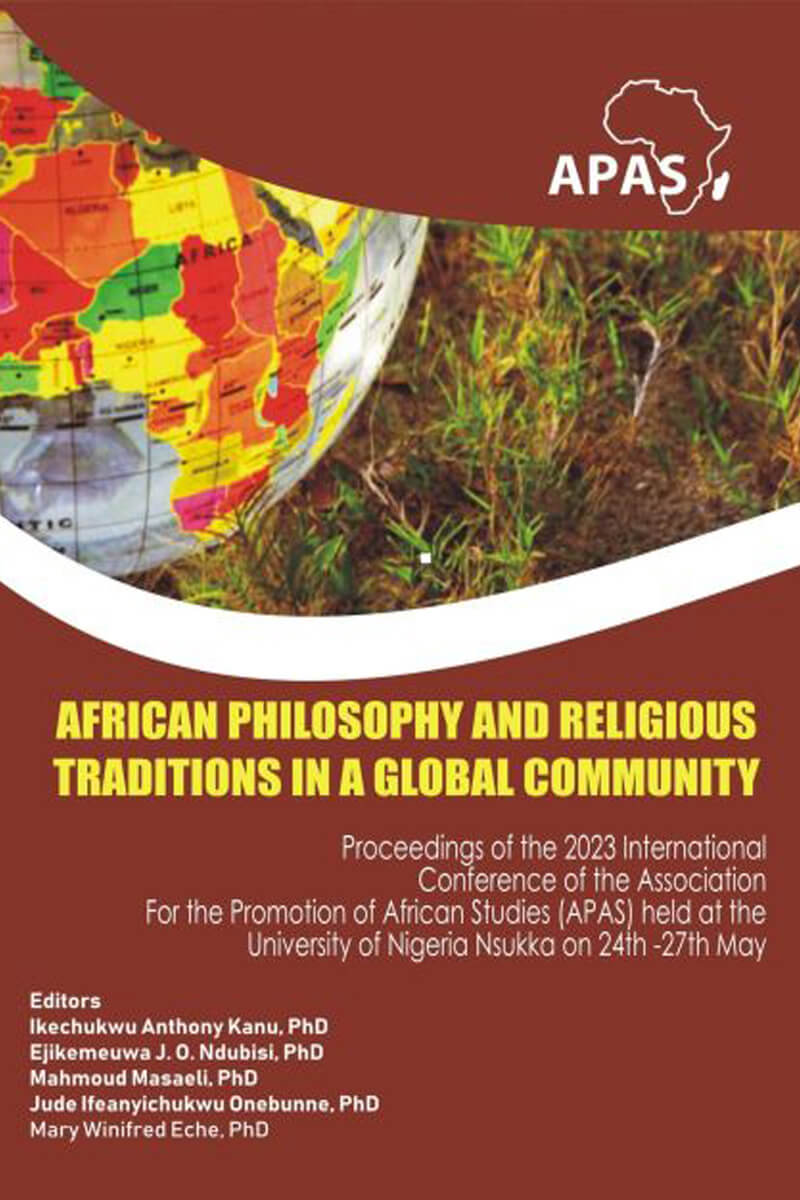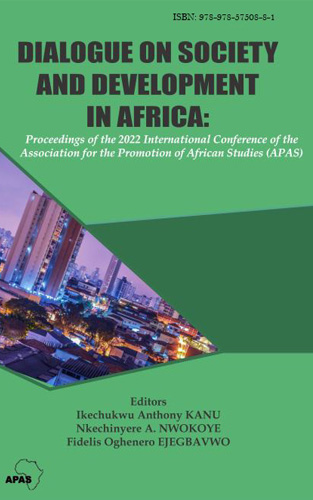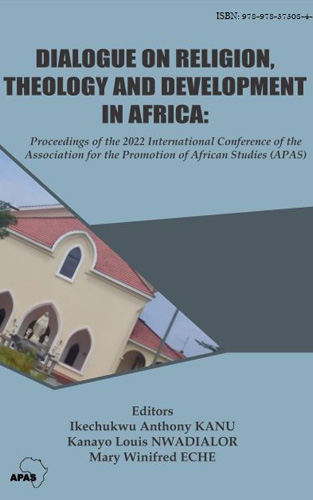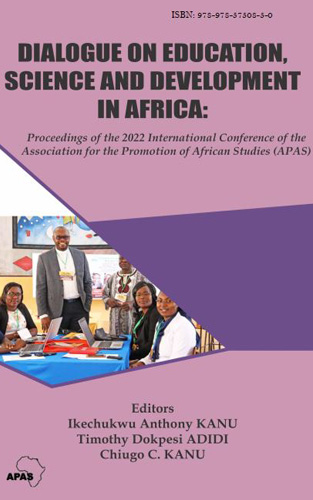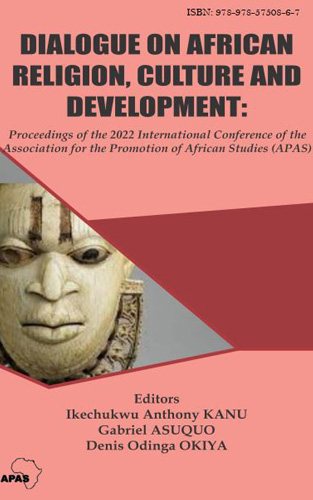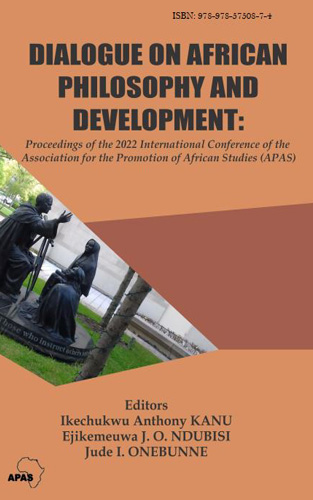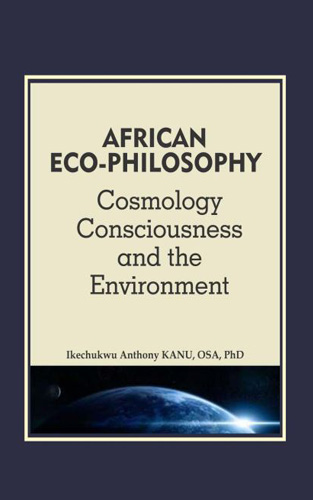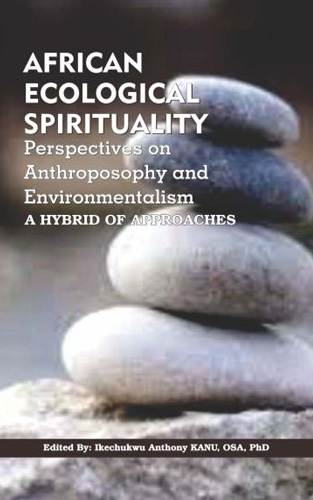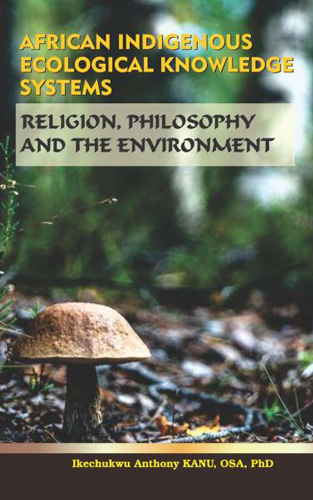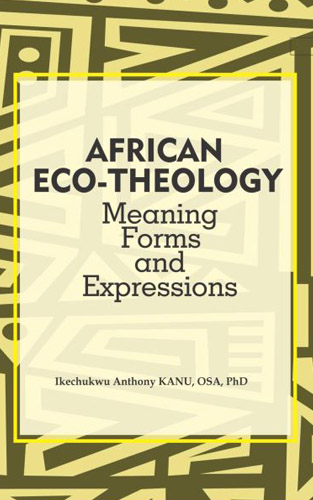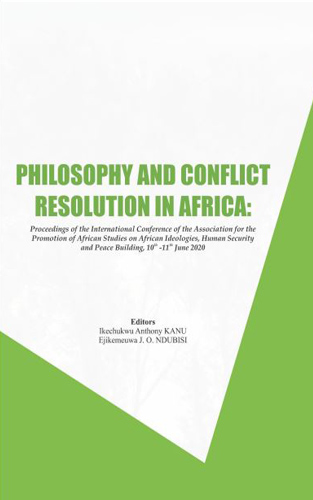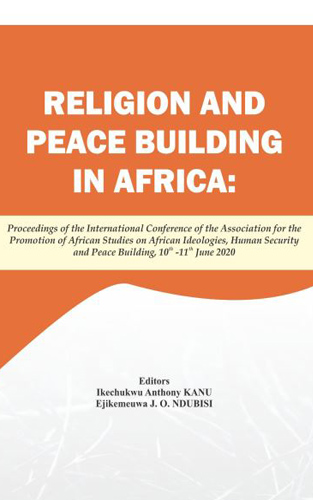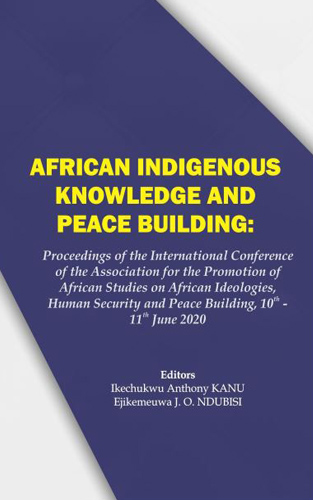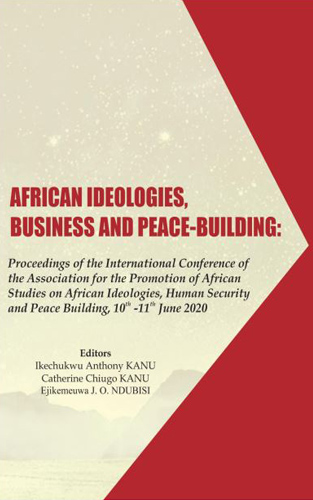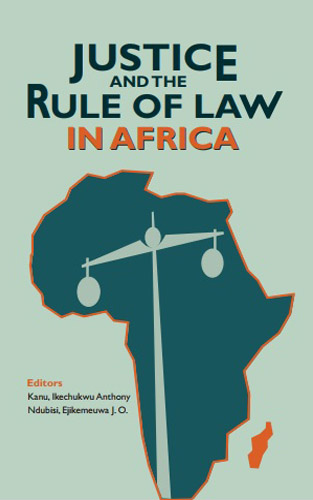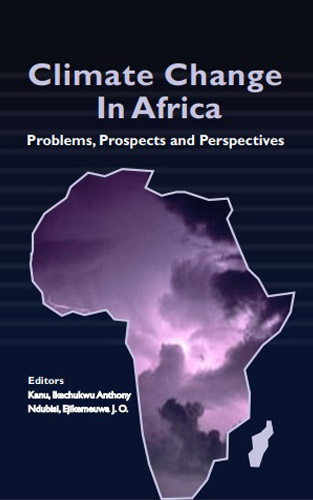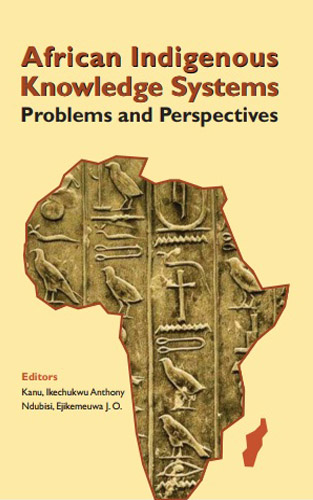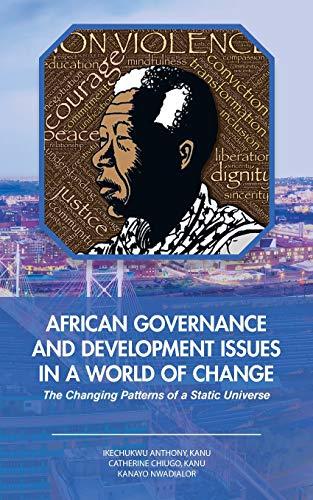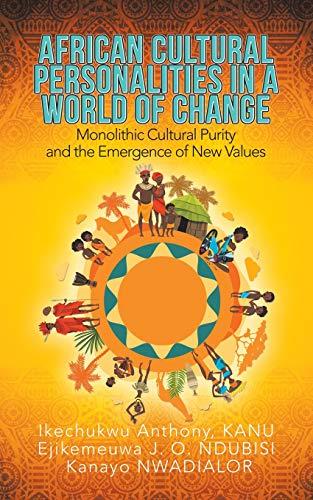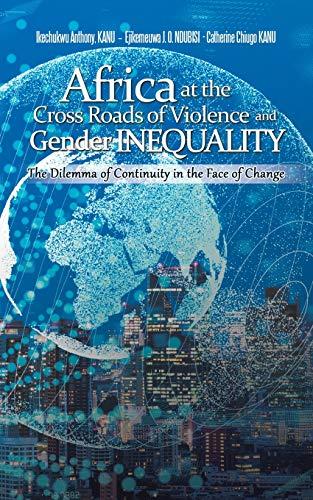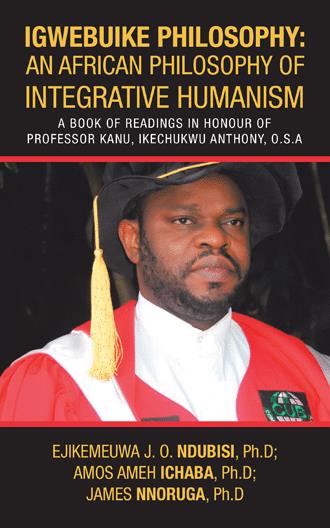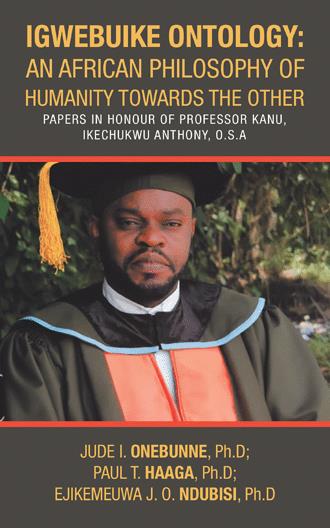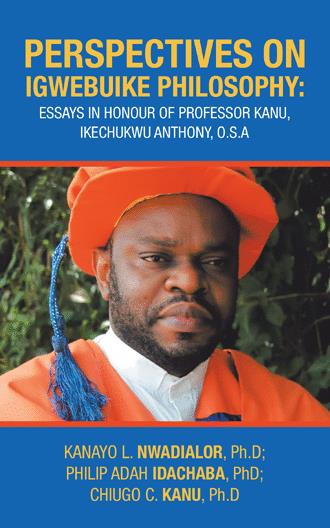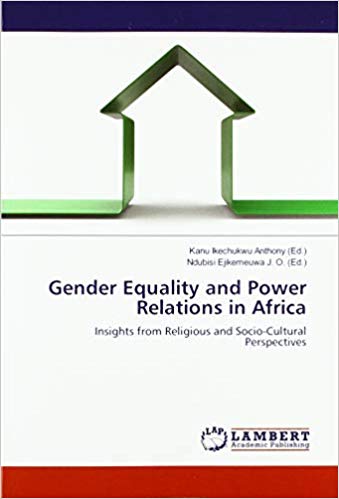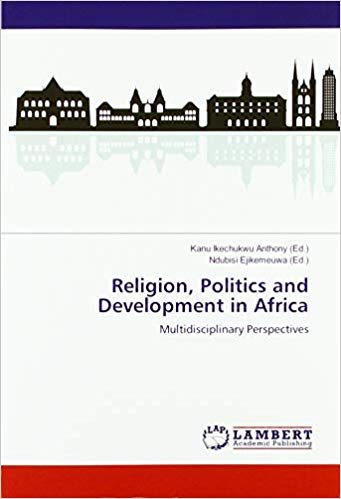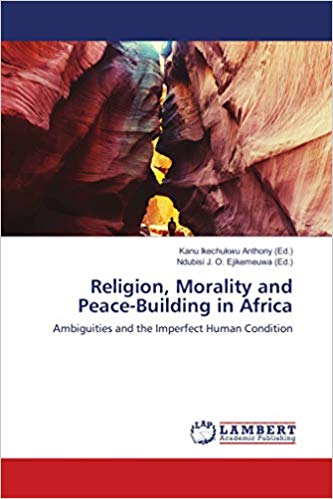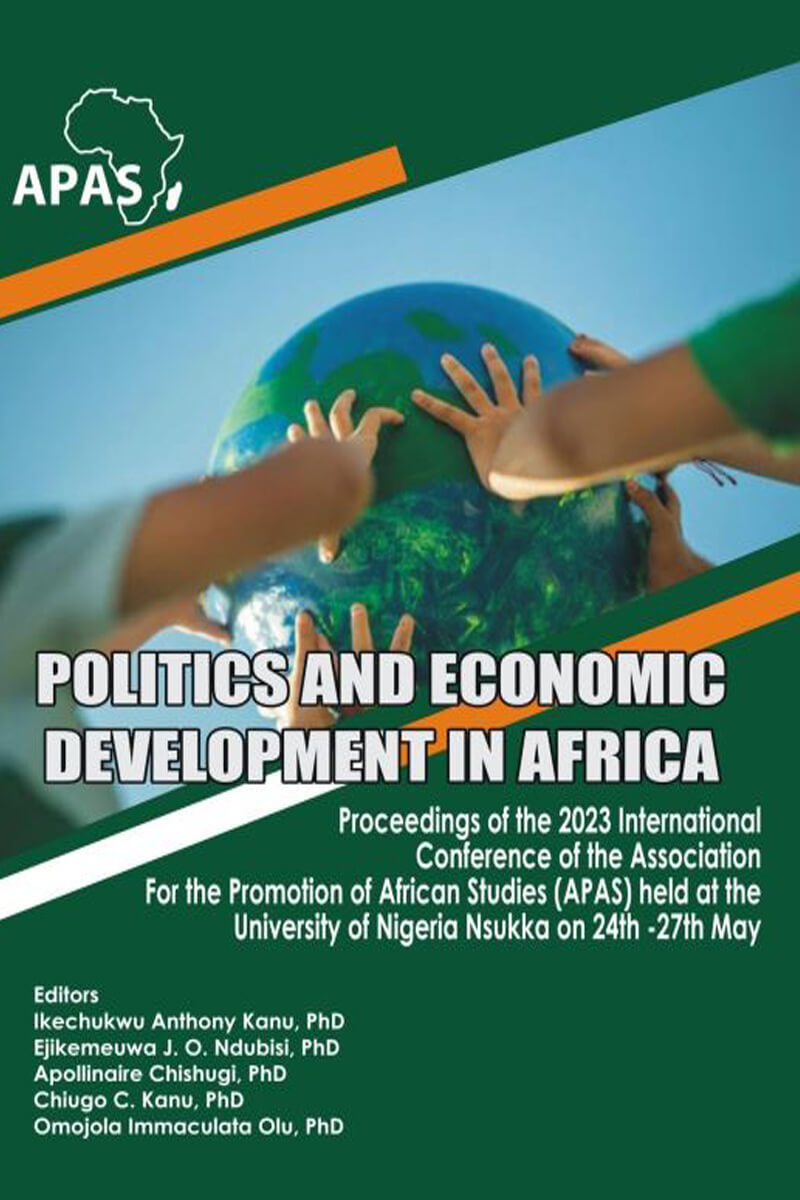 POLITICS AND ECONOMIC DEVELOPMENT IN AFRICA
POLITICS AND ECONOMIC DEVELOPMENT IN AFRICA Editors: Ikechukwu Anthony Kanu, PhD; Ejikemeuwa J. O. Ndubisi, PhD; Apollinaire Chishugi, PhD; Chiugo C. Kanu, PhD & Omojola Immaculata Olu, PhD
The 2023 international conference of the Association for the Promotion of African Studies was held at the University of Nigeria Nsukka, with the theme: Africa In The Global Community: Landmark Achievements, Setbacks And Future Developments. The conference focused on the relationship between Africa and the global community. The conference aimed to retell the African story in a unique African manner. This is very important as the African continent has been presented and described in the global space, most times negatively and by non-Africans. The present work on Politics And Economic Development In Africa is a collection of papers presented at the conference bordering on politics and economic development. Through this piece, the Conference shares the fruits of her research with the rest of the academic community.
